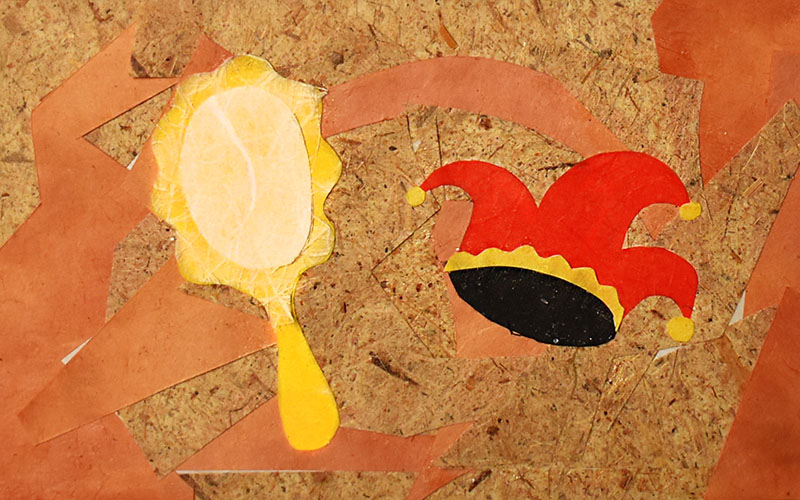We are increasingly told that empathy is the stuff of literature, both the thing that a great writer possesses in abundance and the benefit that a reader derives from her experience. This notion even comes with the imprimatur of social science, in the form of a widely-reported New School study finding that people who read literature perform better on empathy tests (genre readers do not). Empathy is becoming the state religion of American literature. It is also a deeply dubious way to think about what we want from writers.
Empathy is good cultural currency at the moment, in part because it is the character trait that our President seems most conspicuously to lack. There does seem to be a kind of soul-sickness in American life at the moment. We are lonelier than we used to be and less good at making meaning. With the country circling the drain, writers and critics naturally feel a certain moral anxiety gathering behind their study doors. It would be pleasing to think, as university English departments confront philistine attacks and technocratic skepticism, that literature had a contribution to make to solving our spiritual malaise.
I am skeptical, however, of the attempt to conflate literary values with the values of good citizenship. There are situations, in life and in literature, where empathy is not the appropriate response — not even the appropriate response to another person’s suffering. Consider the people who have their children taken away by the state because they have abused or neglected them. Such people probably suffer as a result of losing their children, but our first response to them should nonetheless be moral disgust. To lead with empathy in such an instance places our own moral vanity ahead of the safety and well-being of the children they have injured. Likewise, a novelist is not required to bathe all of her characters in empathy’s lukewarm water. A novelist imagines — and sometimes what she imagines is hypocrisy or stupidity or evil. That is just as it should be, and no deficit of humanity should be implied.
There is also a noblesse oblige quality to all of this insistence on empathy as if our highest obligation as cultivated people were to think well of others despite all evidence to the contrary. One of the goals of our formal education, however — and of our reading — should be that we learn to discriminate, not on invidious bases, but on the quality of other people’s actions rather than their status. Kingsley Amis’s Lucky Jim is a joyously hateful book — in the sense that all good satire is motivated by some original antipathy — but it also serves to illustrate that vanity and folly are often found in high places, even in university departments of English.

The term empathy often is not used with much precision; like Bengay, it is the balm that heals all moral injuries. In its strict meaning — the imaginative projection into another’s feelings — empathy is almost the sine qua non of all narrative writing since a writer can only know his own mind and perhaps those of a few other people with whom he has close acquaintance and must draw upon his imagination in representing the interiority of his characters. So obviously something more is intended when writers are praised for possessing a superabundance of empathy. What is intended is perhaps something more like sympathy, which is a salutary emotion but not one that we want to employ indiscriminately — in literature or in life.
Per Aristotle, “Justice consists in loving and hating aright,” and the writer’s duty is to do justice to her characters, which is not necessarily to treat them all kindly. Literature must take account of malign (and mixed) motives in others equally as much as innocent ones. Much great writing has been fueled primarily by hatred rather than by sympathetic understanding. Flaubert was a famously gifted hater, as were James Joyce and Saul Bellow — and you wouldn’t lightly introduce Patricia Highsmith to your parents. Remember your bitchy, funny college friend who drank too much and talked behind everyone’s back? She became a writer. The nice one, the one everyone turned to with their troubles? She got a master’s in social work, treats the indigent, and helps beautify neighborhood parks on the weekend. Which one do you think is going to write A Handful of Dust?
Empathy need not be a liberal or conservative value, but at the moment it is a liberal buzzword, one that serves as shorthand for what the good guys have and the other guys lack. It’s not at all clear, though, that one side’s buzzwords are any better than the other’s. (When conservatives want to run up their flag, they talk about “realism,” apparently in the sense of hard-heartedness.) And as political jargon, they are equally a threat to literature because they are inimical to literary values.
We necessarily accept certain constructs in the name of politics: that people are basically well-meaning; that everyone essentially wants the same things; that differences in quality of personality are best understood by reference to the social environment. These things are demonstrably false. Experience teaches us that human personality is infinitely variable; that some people hunger for beauty while others want money or power; and that while some people are good, or as good as they can be, others positively revel in their badness, and chortle at the limiting scruples of others. A putative writer of literature must honor the latter reality rather than the former construct.

The novel is constantly assailed by people wanting to conscript it to their own ends. (Other art forms are not similarly burdened; someone yelling “What about global warming?” between numbers at a Keith Jarrett concert would be recognized to have made a category error.) I think we should resist all attempts to yoke literature to utilitarian purposes, perhaps especially to the most commendable and unobjectionable purposes. Of course, some truly great writers have written with such purposes very much in mind; Dickens and Orwell are the names that leap to mind, but there are other examples. But to state a preference for such writing is to impose imaginative constraints that none of us would care to live within in the long run. We should also ask what literary virtues this hypertrophied empathy might be crowding out.
Literary virtue sometimes comes at the expense of the reader’s comfort, especially at the expense of his desire to think well of himself. The novel sitting on my nightstand at the moment is Martin Amis’s Money, a work both extremely indecorous and extremely funny. Money has given me enormous pleasure; it has deepened my sense of human motive, but I doubt that it has improved me in any recognizable sense. Amis is a pointedly “not nice” writer, as was his father, Kingsley; more than that, he knows that we, his readers, are not as nice as we pretend to be. The most that might be said for my reading Money is that possibly, in safely indulging my own unkindness, I am setting sail from the island of my bourgeois self-regard for some farther shore, where the follies of Money’s pestilent narrator, John Self, merge with my own. I am grateful, above all, that Money’s author gave no thought to my character at his writing desk and probably not much thought to his own. The road to cliché is paved with good intentions. We should defend literature for the basically irresponsible, self-seeking, and often delightful activity it is, both for readers and writers. •




